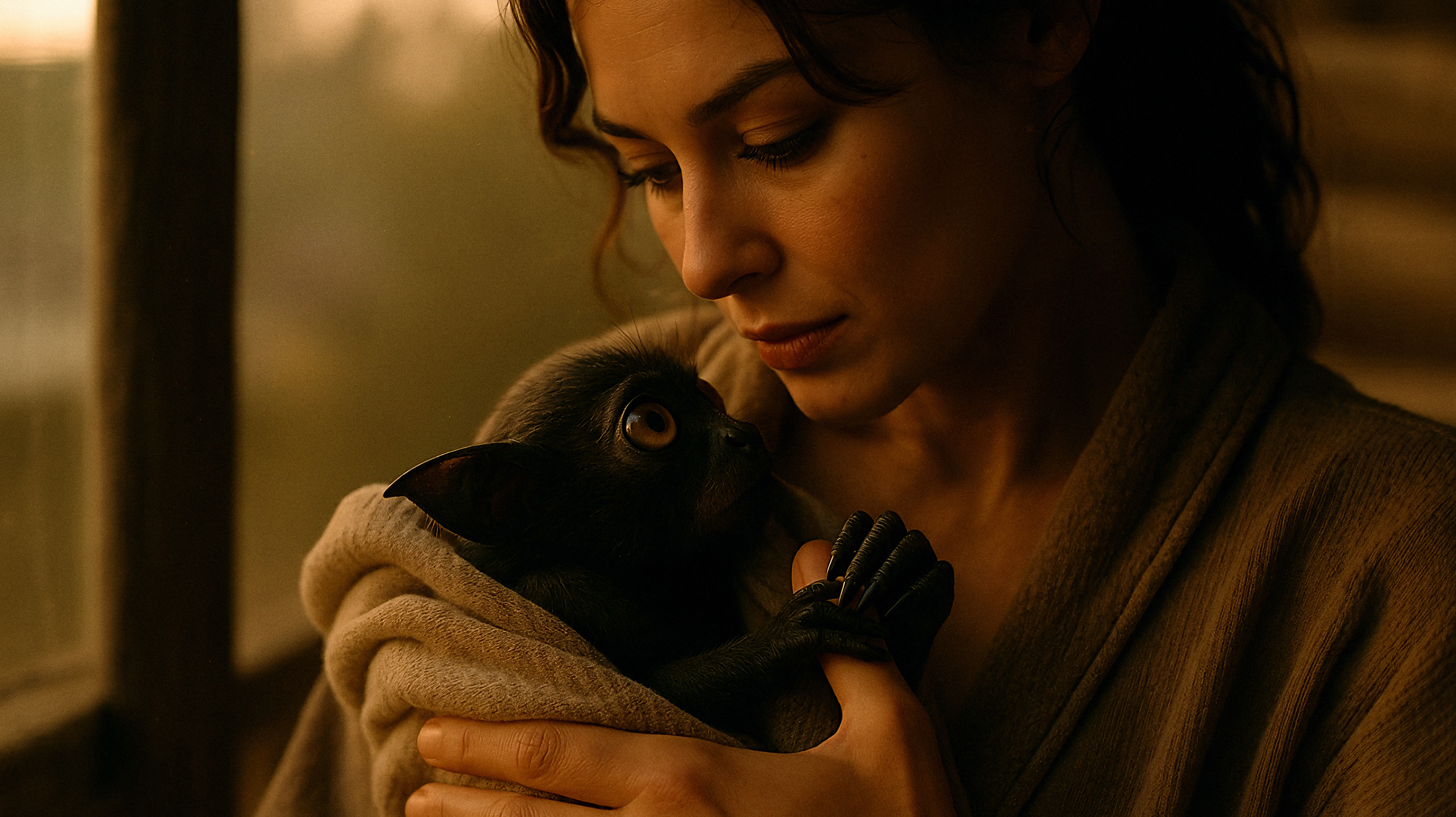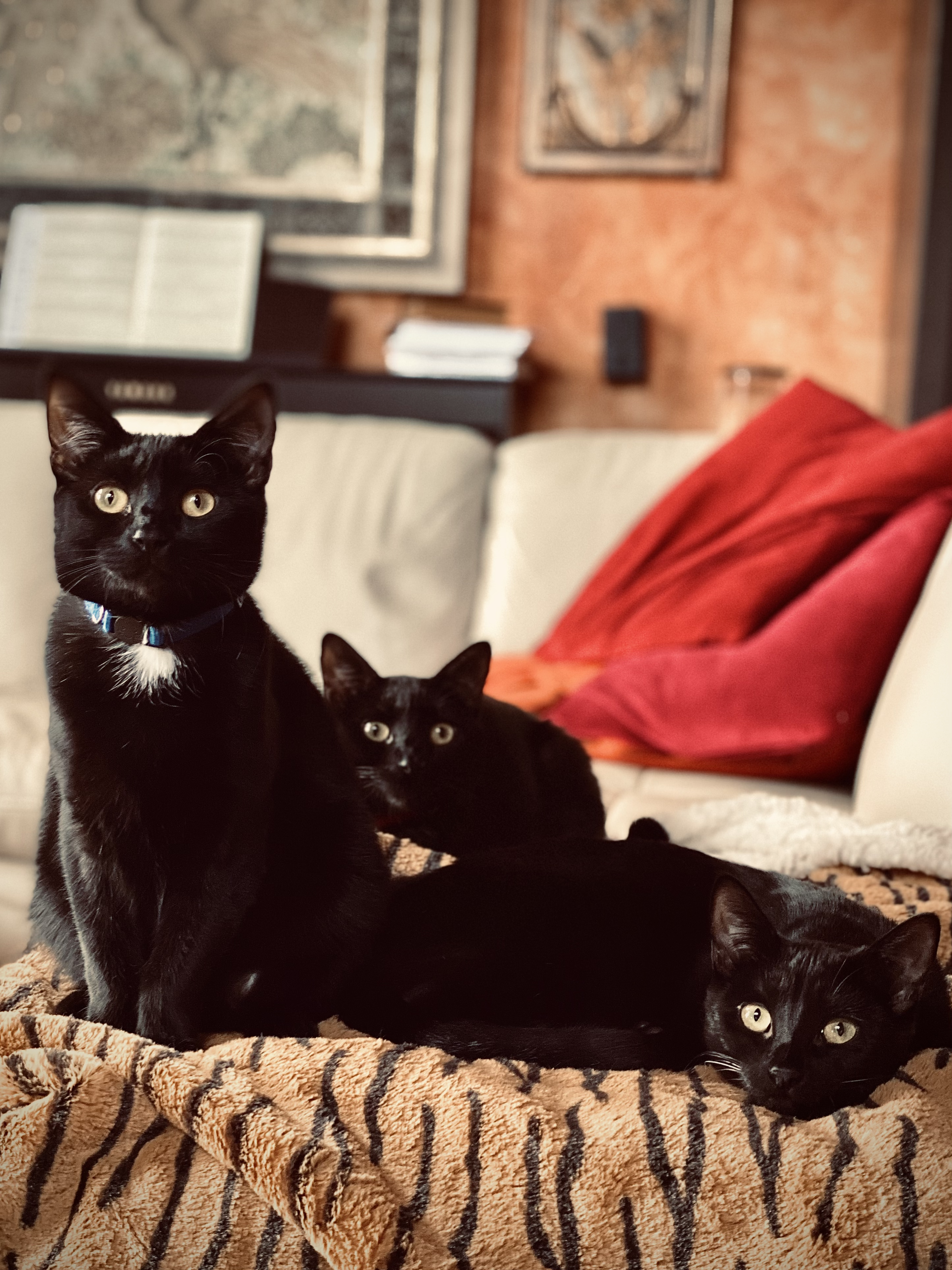ORIGIN
Monsters are real.
And they walk among us.
Some wear suits. Some wear uniforms. Some wear our own faces in the mirror.
We live in an age of fear. Alienation. Cruelty.
But I believe stories are how we survive. How we’ve always survived.
Because stories are how we remember who we are.
And how we find our way out of the pit.
THEO was born in the midst of a dark chapter.
It was the height of the pandemic. Death and grief were everywhere. I’d lost people I loved. I was isolated. Unmoored.
And then, almost impulsively, I took in three orphaned black kittens who had just lost their mother.
I was single. I had no children. I’d never even been a pet owner.
But something about their fragility — and their ferocity — broke me open. I fed them, cared for them, watched them grow. And in their play, their hunger, their wildness… I saw something ancient. Something primordial.
They were beautiful. They were vicious. They were alive. And I loved them.
I started to wonder — if they could grow larger, stronger, more dangerous…
What would I do to protect them?
What would I do if the world came for them?
How far would I go to keep them safe, even if they became something monstrous?
That question became THEO.
Beneath that story is another. One I’ve carried my whole life.
I was a refugee. A child born into revolution and war. Hunted. Persecuted. And forced to flee. Displaced again and again, growing up with the constant sense that I didn’t belong.
I’ve seen real monsters. And lived in fear of them.
But I also know what it is to be feared. To be seen as the other. As a danger. To long for safety, and not be sure where home is.
THEO is a story about a woman shattered by grief who finds love in the unlikeliest of places — in a creature everyone else fears.
The most powerful force in nature is love.
And there is no greater expression of it than a mother’s love — selfless, protective, unconditional.
When Helen believes she has nothing left to give to the world, it is this love that rises from the ashes. In choosing to care for this strange, feared being, she finds something to live for again.
And in nurturing his soul, she discovers the depth of her own.
I’m inspired by storytellers like Stephen King and Guillermo del Toro. Masters of their craft who use genre as a vessel to reach hidden, deeper truths.
Who remind us horror and beauty, love and fear, death and life, are often two sides of the same face.
That monsters are not always what they seem. And that sometimes, what we fear… is what ends up saving us.
THEO is a fable.
A nightmare. A love story. A question.
And like all the stories I love, it holds a mirror.
Because within each of us, there lives a monster. And a hero.
In the end, what makes us one or the other is not what we say…
Or what we believe…
Not even what we do…
It’s what we’re willing to die for.
CREATOR BIO
Siavash Farahani is an Iranian-American writer, filmmaker, and storyteller whose work explores the hidden fault lines between beauty and brutality, tenderness and terror.
Born in Tehran just before the revolution, he fled war with his family as a child, living in refugee camps in Norway before settling in Los Angeles.
That early dislocation planted the seed for stories of belonging, transformation, and survival that would shape his career and worldview.
A graduate of USC’s School of Cinematic Arts, Siavash sold his first feature script at the age of 21. He has since worked as a writer and producer in both film and television, including recent work on Dune: Prophecy for HBO. And has directed several short films. He is also a respected educator, teaching screenwriting and storytelling at USC School of Cinematic Arts and other institutions.
A lifelong cinephile, Siavash is drawn to mythic structure, morally complex characters, and stories that re-enchant the world. THEO is his most personal project to date and will mark his feature directorial debut.
He lives in Los Angeles with his three rescue cats, who were adopted during COVID and whose love inspired this story.
Meet Hemingway, Dumas and Poe.








